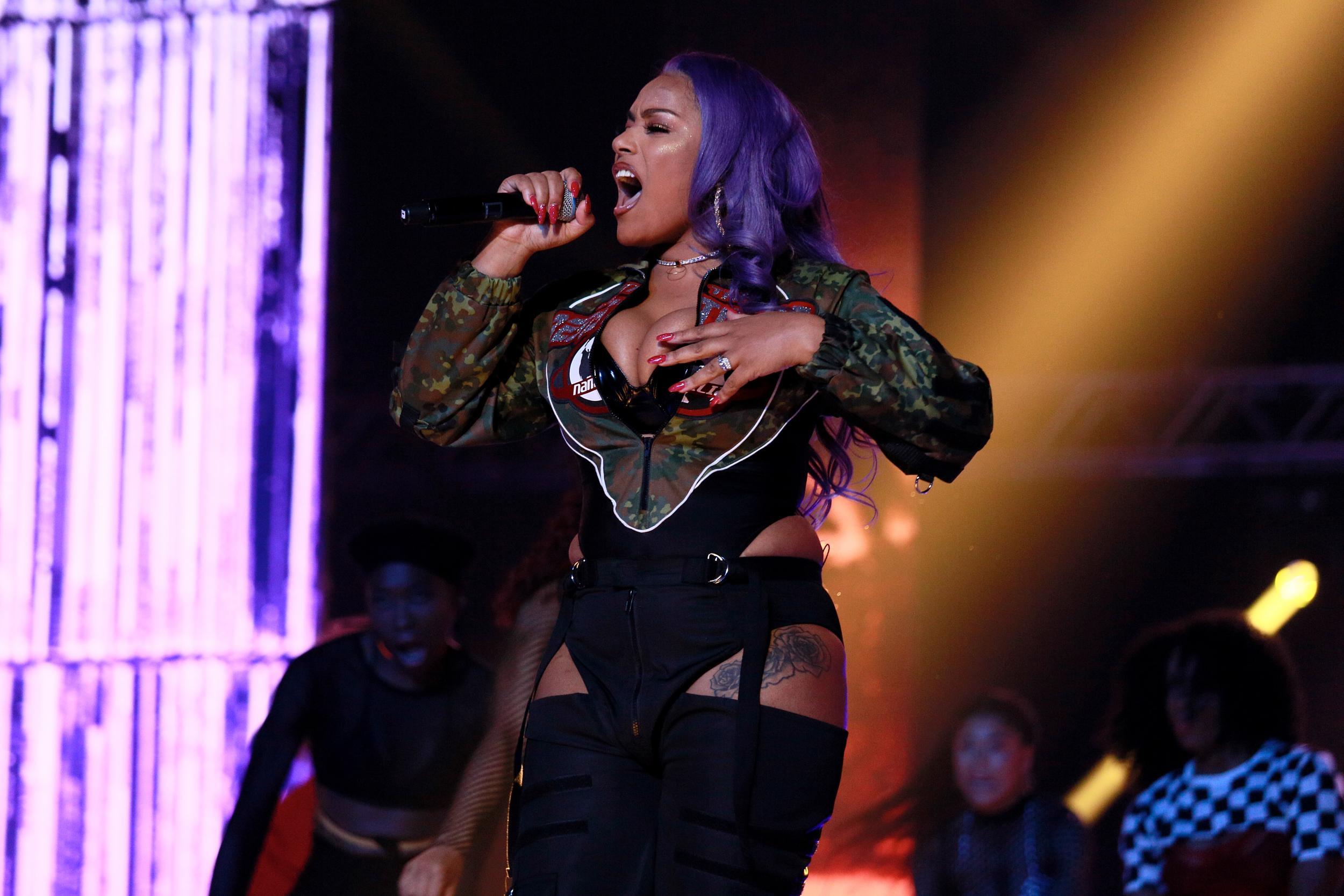MTV Cribs is back – but after coronavirus, do we have the stomach for it anymore?
Is the tide turning on reality TV shows that flaunt celebrity wealth? I have a feeling it might be


Your support helps us to tell the story
From reproductive rights to climate change to Big Tech, The Independent is on the ground when the story is developing. Whether it's investigating the financials of Elon Musk's pro-Trump PAC or producing our latest documentary, 'The A Word', which shines a light on the American women fighting for reproductive rights, we know how important it is to parse out the facts from the messaging.
At such a critical moment in US history, we need reporters on the ground. Your donation allows us to keep sending journalists to speak to both sides of the story.
The Independent is trusted by Americans across the entire political spectrum. And unlike many other quality news outlets, we choose not to lock Americans out of our reporting and analysis with paywalls. We believe quality journalism should be available to everyone, paid for by those who can afford it.
Your support makes all the difference.If you’d asked me 15 years ago whether I’d lament the return of MTV Cribs after a hiatus of around a decade, the answer would have been an emphatic, “No, why wouldn’t I be excited?!” But alas, at the first sighting of the promotional clips you’ve also probably seen floating around on your timeline, my first thought at the idea of the reality series once again gracing our screens was: is this a joke?
For those of you who weren’t MTV Cribs keenos in the early Noughties, some context: the premise of this show is essentially celebrities showing off their copious wealth – and more often than not, poor interior decorating choices. But, as resurfaced clips of the most famous celebs to grace the franchise have reminded us this week, it was the campiness of it all that made it what it was.
Mariah Carey working out in “four-inch heels” as she gazes out at her New York City view on a step machine; lying on her kitchen chaise longue and asserting that she “has a rule against sitting up straight”. Usher’s wardrobe tour of over 2,000 shoes. And on the flip side of the show’s usual extravagance, rapper Redman’s almost satirical tour of his Staten Island home, complete with broken blinds, an unmade bed, an unusually modest game station… and his floor-cum-ironing board. An episode people still debate the authenticity of, now that so many of us are aware that not all these celebrities filmed at their actual homes. Spoiler alert: his was real.
Developed by Viacom executive Nina L Díaz, also the mind behind My Super Sweet 16 and The Osbournes (which she conceived of while working on Cribs), the show was, according to The Washington Post, borne of the then practically unheard-of thrill of being able to “follow your favourite celebrity home”.
“What if you could see how they really lived: what snacks they stashed in their pantry, how messy their bedrooms were, what photos were on the walls? What if, in their most intimate places, they felt looser and at ease and revealed more of their true selves?” wrote Jessica M Goldstein, author of the aforementioned interview.
It doesn’t seem like so much of a revolutionary idea in this day and age, where social media has picked up that slack, disarming celebrities so much that many of them now actively encourage strangers to have a glimpse at the most intimate parts of their lives. But that said, it is interesting to think of how much has changed since the show first burst onto the scene in 2000.
In its current iteration, featuring celebrities like Caitlyn Jenner and Stefflon Don, a UK artist and songwriter famous for singles like “Hurtin’ Me”, there is something that feels a little out of place about indulging in these shameless displays of riches. It was the same feeling many of us had when, for whatever reason, 25 celebrities gathered from their ivory towers to gift us that excruciating Zoom cover of “Imagine” right at the start of the pandemic, as if we were all in this together. It felt insensitive, cringeworthy, useless. Looking at drone shots of Jenner’s enviably beautiful Malibu home, or Stefflon’s, I can feel the same “ick” rising within me.
That’s not to say that I don’t understand why people would be intrigued. Particularly where Stefflon Don – a Black British artist whose rise and rise has mostly been, for me at least, a joy to watch – is concerned. There is something heartwarming about seeing her success manifested in the form of white interiors, shelves of awards and shiny ornaments. Seeing her with her family too was a nice touch. It makes sense that some fans would want to celebrate that.
But it got me thinking about general attitudes towards celebrity wealth in the pandemic, and whether the tide is turning on our ability to stomach how much more well-off so many of them are in comparison to the vast majority of people in the world. I have a feeling it might be.
Take the latest “debate” about Birkin bags, for example. Sparked by rapper Saweetie, in an Instagram video in which she claims that it’s worth breaking up with a partner if they won’t pay your bills, or buy you one of the expensive Hermes bags, the discussion has now exploded all over the internet. Suddenly everyone – even those of us whose bank accounts cannot accommodate splurging thousands on designer handbags – had a stake in this game.
People (Birkin-owning celebs included) began to suggest that, actually, celebrities like Saweetie, or Cardi B, one of many to come out in defence of those particular criteria for a suitable partner, were depreciating the value of the bag. That their sudden obsession with it, or their blackness or standing in society, meant that they cheapened the product.
But as meme and celebrity gossip accounts continued to ask asinine questions like: “Men, how much work does a woman have to put in to deserve a Birkin?” I couldn’t help but feel utterly mystified. Shouldn’t we be asking why, in a pandemic, we’re so preoccupied with a scenario most of us probably won’t ever have to worry about? A situation that reveals far more about the pitfalls of capitalistic greed, consumerism and how wedded society is to gender roles? That’s what I thought. And I wasn’t alone. As people began to tire of the debate, the backlash grew.
More Twitter and Instagram users began to chime in with similar thoughts, some teeming with respectability and classist politics, others more concerned with ending the ridiculous discussion in the first place. Comments from the likes of internet comedian Kayla Nicole Jones, who questioned why famous people weren’t talking about how they could help those “who’ve helped us be able to thrive during a time like this?” were praised by celebrities like T.I. (whose reliance on classism and respectability politics is a discussion for another day). Suddenly the most burning question had become “why do we even care?” Or “why are we taking dating advice from these people anyway?”
Is that to say we’ve had enough of displays of extravagant wealth altogether? The popularity of shows like Selling Sunset, Marrying Millions, and potentially, MTV Cribs, appear to suggest not. But I do think we’re growing weary. As leaders around the world struggle to get to grips with coronavirus, pushing millions further into poverty than many already experienced pre-pandemic, the wealth and lifestyle divide between us and the celebrities we look up to may widen to nauseating degrees. I wonder how eager we’ll be to pore over footage of their mansions then?
In an era of ever-escalating political and social turmoil around the world, having a front-row seat to see “where the magic happens” – that famous phrase that many of Cribs’ featured celebrities uttered when they opened their doors to MTV’s camera crew – doesn’t appear to be cutting it anymore. I never thought I’d see the day.


Join our commenting forum
Join thought-provoking conversations, follow other Independent readers and see their replies
Comments